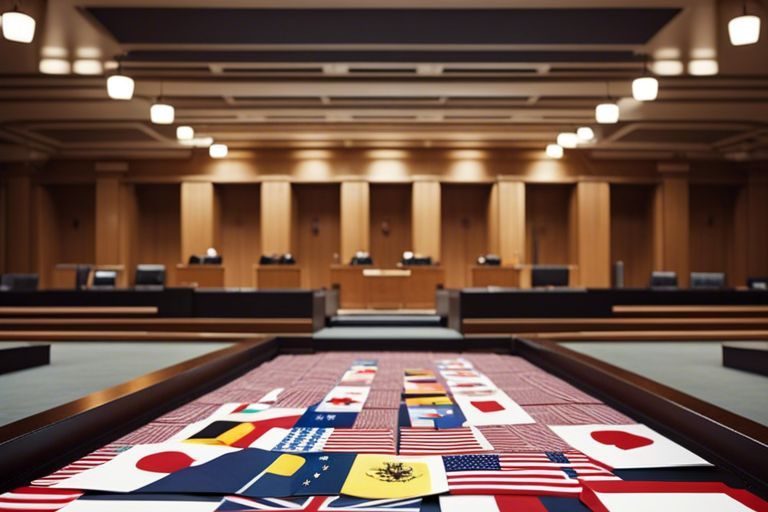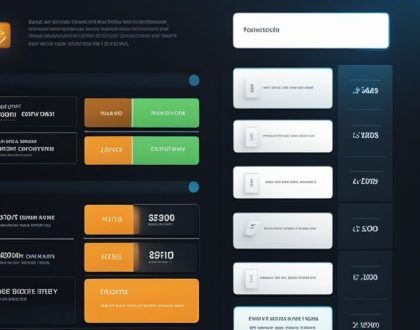Cross-Border Licensing – A Legal Maze

Over international boundaries, coordinating licensing agreements can be a complex and maze-like journey. Navigating through the legal intricacies of different countries while protecting intellectual property rights presents a myriad of challenges for businesses seeking to expand globally. It is crucial to understand the nuances of each country’s laws and regulations to avoid costly legal disputes and maintain the integrity of the licensing agreements.
Understanding Cross-Border Licensing
While navigating the complex world of cross-border licensing, it is crucial to have a firm grasp on the fundamental concepts of licensing agreements. This chapter aims to provide a comprehensive understanding of the intricate legal maze that is cross-border licensing.
Definition of Licensing in a Global Context
One important aspect to consider when delving into cross-border licensing is understanding the concept of licensing in a global context. Licensing refers to the legal permission granted by a licensor to a licensee to utilize their intellectual property, such as patents, trademarks, or copyrights, under predetermined conditions.
Types of Licensing Agreements
One must also be familiar with the various types of licensing agreements that are prevalent in cross-border transactions. The most common types include exclusive licensing, non-exclusive licensing, and sub-licensing agreements. Each type has its unique characteristics and implications on the parties involved, making it crucial to choose the most suitable arrangement for the specific circumstances.
- Exclusive licensing grants the licensee sole rights to use the intellectual property, excluding the licensor and other parties.
- Non-exclusive licensing allows multiple licensees to use the intellectual property simultaneously.
- Sub-licensing agreements enable the licensee to further sublicense the intellectual property to third parties.
This comprehensive understanding of the types of licensing agreements is crucial in navigating the complexities of cross-border licensing agreements effectively. This knowledge allows parties to make informed decisions when crafting agreements that align with their business goals and legal requirements.
| Exclusive Licensing | Non-Exclusive Licensing |
|---|---|
| Grant sole rights to use IP | Allows multiple licensees |
| Excludes licensor and others | Simultaneous use by parties |
Licensing agreements play a critical role in facilitating cross-border transactions by providing a legal framework for the use of intellectual property across different jurisdictions. Understanding the nuances of various types of licensing agreements is imperative for both licensor and licensee to ensure compliance with laws and maximize the benefits of the arrangement.
Legal Frameworks Governing Cross-Border Licensing
National Laws and Regulations
One of the key aspects of cross-border licensing is understanding the national laws and regulations that govern intellectual property rights in different countries. Each country has its own set of rules and regulations concerning licensing agreements, which can vary significantly from one jurisdiction to another. It is crucial for licensors and licensees to familiarize themselves with these laws to ensure compliance and avoid any legal pitfalls.
Some common issues that arise include differences in contract law, competition law, and tax regulations. One needs to carefully consider these factors when drafting cross-border licensing agreements to mitigate risks and ensure that the agreement is enforceable in all relevant jurisdictions.
International Treaties and Conventions
Governing international treaties and conventions play a crucial role in harmonizing intellectual property laws across borders. These agreements, such as the Berne Convention and the TRIPS Agreement, establish minimum standards for the protection and enforcement of intellectual property rights globally. By adhering to these treaties, countries commit to providing a certain level of protection to foreign intellectual property holders, which is important for international licensing agreements.
Licensing intellectual property under the umbrella of these international treaties provides a level of reassurance and protection for both licensors and licensees. It ensures that intellectual property rights are respected and enforced across borders, reducing the risk of infringement and unauthorized use.
Intellectual Property Rights in Cross-Border Licensing
Protecting IP in Different Jurisdictions
Now, when engaging in cross-border licensing agreements, it is crucial to understand how to protect your intellectual property (IP) in different jurisdictions. Each country has its own set of laws and regulations regarding IP rights, and failure to comply can lead to significant legal challenges and financial losses.
To safeguard your IP rights, it is imperative to conduct thorough research on the legal landscape of the countries involved in the licensing agreement. This includes understanding the requirements for registering and enforcing IP rights, as well as any differences in patent, trademark, and copyright laws.
Enforcement of IP Rights Across Borders
Now, when it comes to enforcing IP rights across borders, the process can be complex and challenging. Cross-border enforcement efforts often require coordination between multiple jurisdictions, each with its own legal procedures and protocols. This can make it difficult to pursue legal action against infringers who operate in different countries.
This underscores the importance of having a comprehensive enforcement strategy in place before entering into cross-border licensing agreements. Working with experienced legal counsel who specialize in international IP law can help navigate the complexities of cross-border enforcement and protect your valuable intellectual property assets.
Negotiating Cross-Border Licensing Agreements
Key Terms and Clauses in Licensing Contracts
On the journey of negotiating cross-border licensing agreements, understanding key terms and clauses in licensing contracts is crucial. Key terms such as territorial rights, duration of the agreement, payment terms, exclusivity, and termination clauses must be clearly defined to avoid misunderstandings and disputes later on. It’s important to have a solid grasp of all aspects of the agreement before finalizing the deal to protect the interests of both parties involved.
Strategies for Effective Negotiation
Strategies for effective negotiation play a vital role in securing favorable terms in cross-border licensing agreements. Having a clear understanding of the market dynamics, cultural differences, and legal frameworks of the countries involved can provide a significant advantage during negotiations. Maintaining open communication, building trust, and seeking mutually beneficial solutions are key components of successful negotiation strategies in cross-border licensing.
For instance, being aware of the common pitfalls in cross-border negotiations, such as language barriers, differing business practices, and varying regulatory requirements, can help navigate the negotiation process more effectively and ensure a smoother agreement.
Compliance and Due Diligence
Navigating Compliance in Multiple Jurisdictions
Not adhering to licensing regulations across multiple jurisdictions can lead to serious legal consequences for companies engaging in cross-border licensing agreements. It is vital to understand and comply with the laws and regulations of each country involved to ensure a smooth licensing process. Failure to comply with these regulations can result in hefty fines, legal disputes, and reputational damage.
Conducting Due Diligence for Licensing Partners
One of the crucial aspects of cross-border licensing is conducting thorough due diligence on potential licensing partners. It is important to verify the credibility, reputation, and legal standing of potential partners to mitigate risks and ensure a successful partnership. Failing to conduct proper due diligence can lead to partnering with entities that may engage in illegal activities or have a poor track record, putting your intellectual property at risk.
Plus, conducting due diligence for licensing partners involves examining their financial stability, market positioning, and any previous legal issues. This information is crucial in determining the suitability of a partner for a licensing agreement.
Risk Management in Cross-Border Licensing
Identifying and Mitigating Legal Risks
To effectively manage risks in cross-border licensing, it is crucial to start by identifying potential legal risks associated with the agreement. This includes scrutinizing intellectual property laws, contract laws, and regulatory requirements in both the licensor and licensee’s jurisdictions. By conducting a comprehensive legal analysis, companies can anticipate and address potential legal pitfalls before they escalate into costly disputes or legal actions.
Managing Financial and Operational Risks
Risks in cross-border licensing arrangements extend beyond just legal considerations. Financial and operational risks must also be carefully managed to ensure the success of the licensing agreement. This involves assessing currency exchange fluctuations, tax implications, market volatility, and operational challenges that may arise from cultural differences or logistical issues. Implementing robust risk management strategies is imperative to safeguard the financial health and operational efficiency of the parties involved.
The financial and operational risks in cross-border licensing can be complex and multifaceted, requiring a proactive and vigilant approach to risk management.
Dispute Resolution in Cross-Border Licensing
Despite the best efforts to maintain a smooth relationship, disputes may arise in cross-border licensing agreements. Resolving these disputes can be a complex and challenging process due to the involvement of multiple jurisdictions, laws, and parties. However, having a well-thought-out dispute resolution mechanism in place can help mitigate potential conflicts and protect the interests of all parties involved.
Litigation vs. Arbitration for Resolving Disputes
With cross-border licensing disputes, one of the key decisions that parties must make is whether to opt for litigation or arbitration to resolve their conflicts. Litigation involves resolving disputes through the court system of a specific jurisdiction, which can be time-consuming, costly, and may result in a public trial. On the other hand, arbitration offers a more private and flexible dispute resolution process where the parties can choose an arbitrator and tailor the proceedings according to their specific needs.
Best Practices for International Dispute Resolution
Dispute resolution in cross-border licensing agreements requires careful planning and consideration of various factors. It is crucial to include a dispute resolution clause in the licensing agreement that clearly outlines the procedures for resolving conflicts. Additionally, parties should consider choosing arbitration as the preferred method of dispute resolution due to its confidentiality, neutrality, and enforceability in multiple jurisdictions. It is also advisable to agree on the applicable law and the seat of arbitration beforehand to avoid any uncertainties during the dispute resolution process.
Resolution: When navigating the legal maze of cross-border licensing, understanding the best practices for international dispute resolution is crucial. By proactively addressing potential conflicts and incorporating effective dispute resolution mechanisms, parties can safeguard their rights and interests while promoting smooth cooperation across borders.
Conclusion
Now that we have explored the intricacies of cross-border licensing, it is apparent that navigating the legal maze can be a complex and daunting task. From differences in intellectual property laws to varying contract regulations, there are numerous challenges that must be carefully considered when engaging in cross-border licensing agreements.
Successful cross-border licensing requires a comprehensive understanding of the legal frameworks in both the licensor and licensee’s countries, as well as a meticulous attention to detail in drafting agreements. By recognizing and addressing the potential pitfalls and challenges, businesses can successfully navigate the legal maze of cross-border licensing and leverage the benefits of expanding their operations internationally.
FAQs:
What is cross-border licensing?
Cross-border licensing refers to the legal process of granting permission to use intellectual property across different countries’ jurisdictions under specific conditions.
What are the types of licensing agreements prevalent in cross-border transactions?
The most common types of licensing agreements include exclusive licensing, non-exclusive licensing, and sub-licensing agreements, each with unique implications for the parties involved.
Why is it important to understand national laws and regulations in cross-border licensing?
Understanding national laws and regulations is crucial to ensure compliance and avoid legal disputes when engaging in cross-border licensing agreements.
How can companies protect their intellectual property in cross-border licensing?
Companies can protect their intellectual property by conducting thorough research on the legal landscape of countries involved, understanding registration and enforcement requirements, and implementing robust enforcement strategies.
What are the best practices for dispute resolution in cross-border licensing agreements?
Best practices include incorporating dispute resolution clauses in agreements, considering arbitration for its confidentiality and enforceability, and agreeing on applicable laws and arbitration seats beforehand.
Recommended Posts

MGA Outsourcing Compliance Guidelines
July 3, 2024

Risk Management in Online Gambling
July 3, 2024

Payment Integration – A Technical Overview
July 3, 2024




